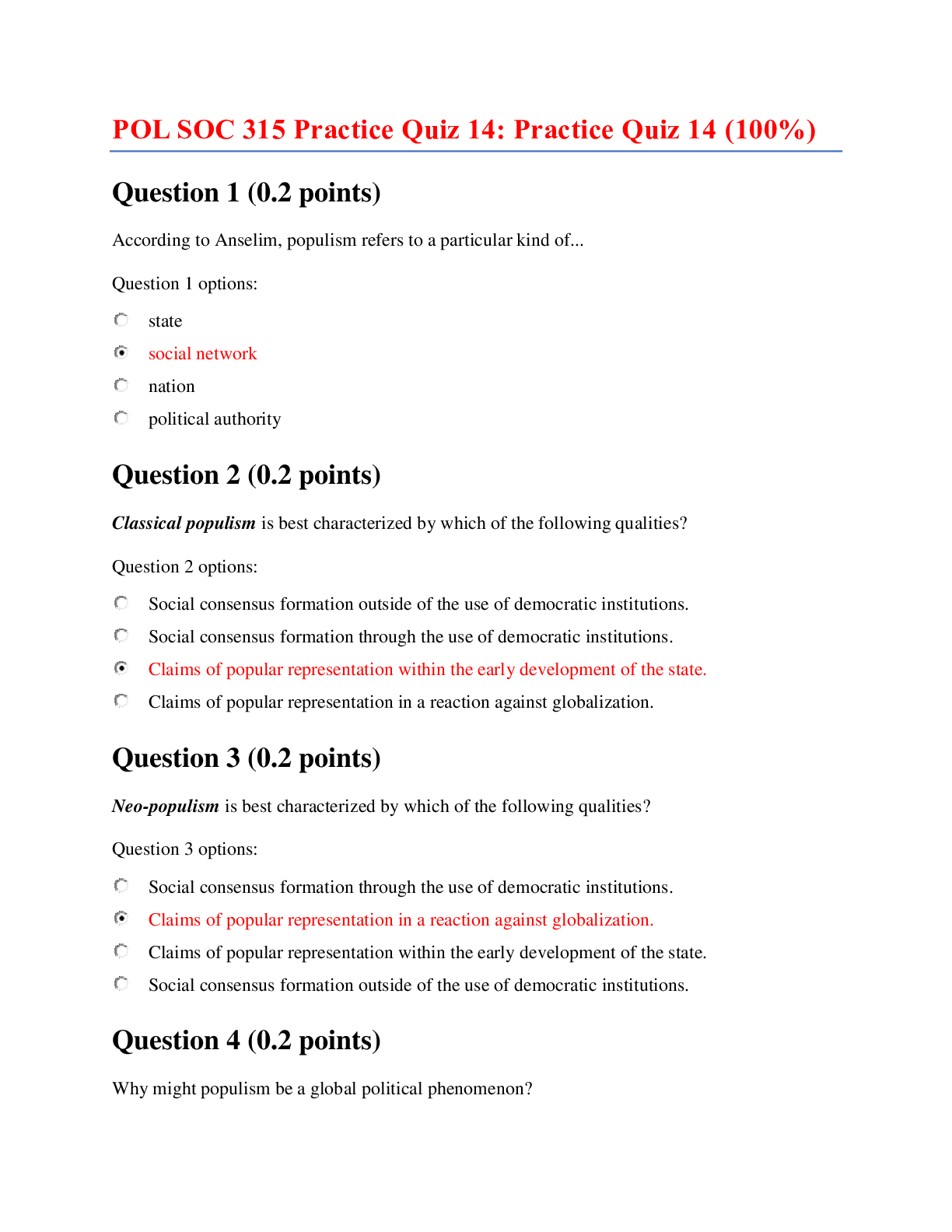Sociology > EXAM > POL SOC 315 Practice Quiz 13: Practice Quiz 13 (100%) (University of Arizona) (All)
POL SOC 315 Practice Quiz 13: Practice Quiz 13 (100%) (University of Arizona)
Document Content and Description Below
POL SOC 315 Practice Quiz 13: Practice Quiz 13 (100%) Question 1 (0.2 points) What key assumption of the nation-state is questioned by the literature on transnationalism? Question 1 options: Th... at the nation-state is self-contained. That the nation-state is homogeneous. That the nation-state is administratively bureaucratic. That the nation-state is an embodiment of the collective conscience. Question 2 (0.2 points) Which of the following observations from the reading challenges functionalist accounts of state organization? Question 2 options: State organization is often based only on globally norms and expectations. State organization is often decided by the wealth and reach of transnational corporations. State organization is often subject to international regulatory bodies. State organization is determined by the needs of society and the mobilization of resources to meet those needs. Question 3 (0.2 points) Which of the following are part of the basic infrastructure of transnational political orders? Question 3 options: Nonprofits and nongovernmental organizations Corporate and political networks International regulatory bodies Cultural tourism and leisure industries Question 4 (0.2 points) Which of the following best paraphrases what Mayer means when he says that state structures and policies are isomorphic? Question 4 options: State structures are formed through democratic processes that are unique to each country. State structures assume the same form and function even if not perfectly identical. State structures begin as dynamic; however, over time, they crystalize and become static formations. State structures are dynamic, evolving, and historically specific. Question 5 (0.2 points) The main reason state isomorphism occurs is because each state acts rationally and there is convergence on the choices made. Question 5 options: True False Question 6 (0.2 points) How are the normative state organizations and structures legitimized worldwide? Question 6 options: They are legitimized as rational by science and the professions broadly. They are legitimized as just by legal professions and authorities. They are legitimized as fair by prevalent ethical authorities. They are legitimized as productive by industry and management sciences. Question 7 (0.4 points) As we see in the reading as well as on our TV screens, social movements and democratic action responding to relatively local or national incidents can spur global and international reactions. What are some of the key advantages and disadvantages to democratic action within the context of increasingly globalized world? Question 7 options: Question 8 (0.4 points) Cosmopolitanism refers to the creation of a single world community unified under the power and leadership of international governing bodies. Do you believe that through globalization the world is directed towards this social and political status, or are there limits to globalization? Please explain your views. Question 8 options: ________________________________________ 2 of 8 questions saved Internet connection lost. No longer saving answers... [Show More]
Last updated: 2 years ago
Preview 1 out of 3 pages

Buy this document to get the full access instantly
Instant Download Access after purchase
Buy NowInstant download
We Accept:

Reviews( 0 )
$8.50
Can't find what you want? Try our AI powered Search
Document information
Connected school, study & course
About the document
Uploaded On
Aug 13, 2020
Number of pages
3
Written in
Additional information
This document has been written for:
Uploaded
Aug 13, 2020
Downloads
1
Views
107

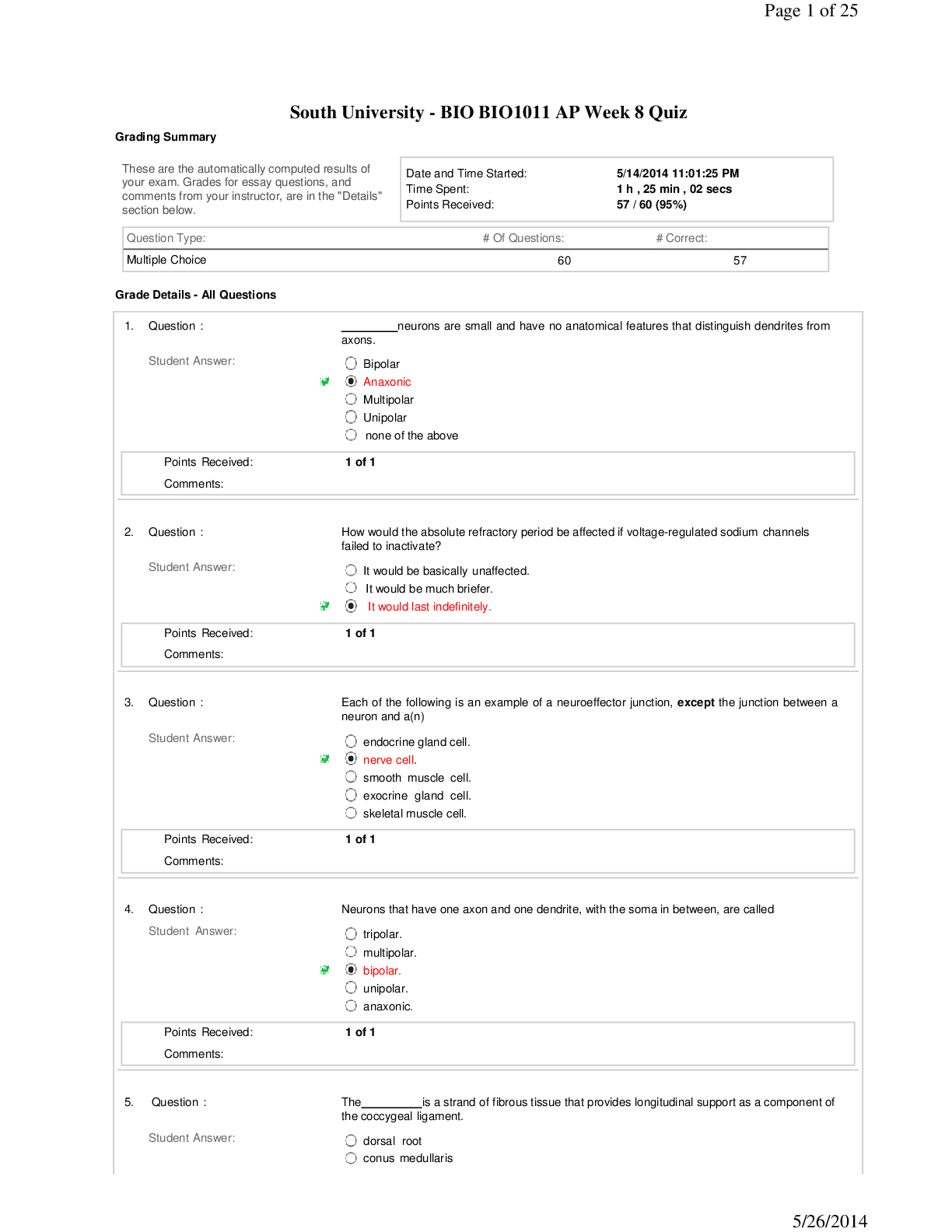
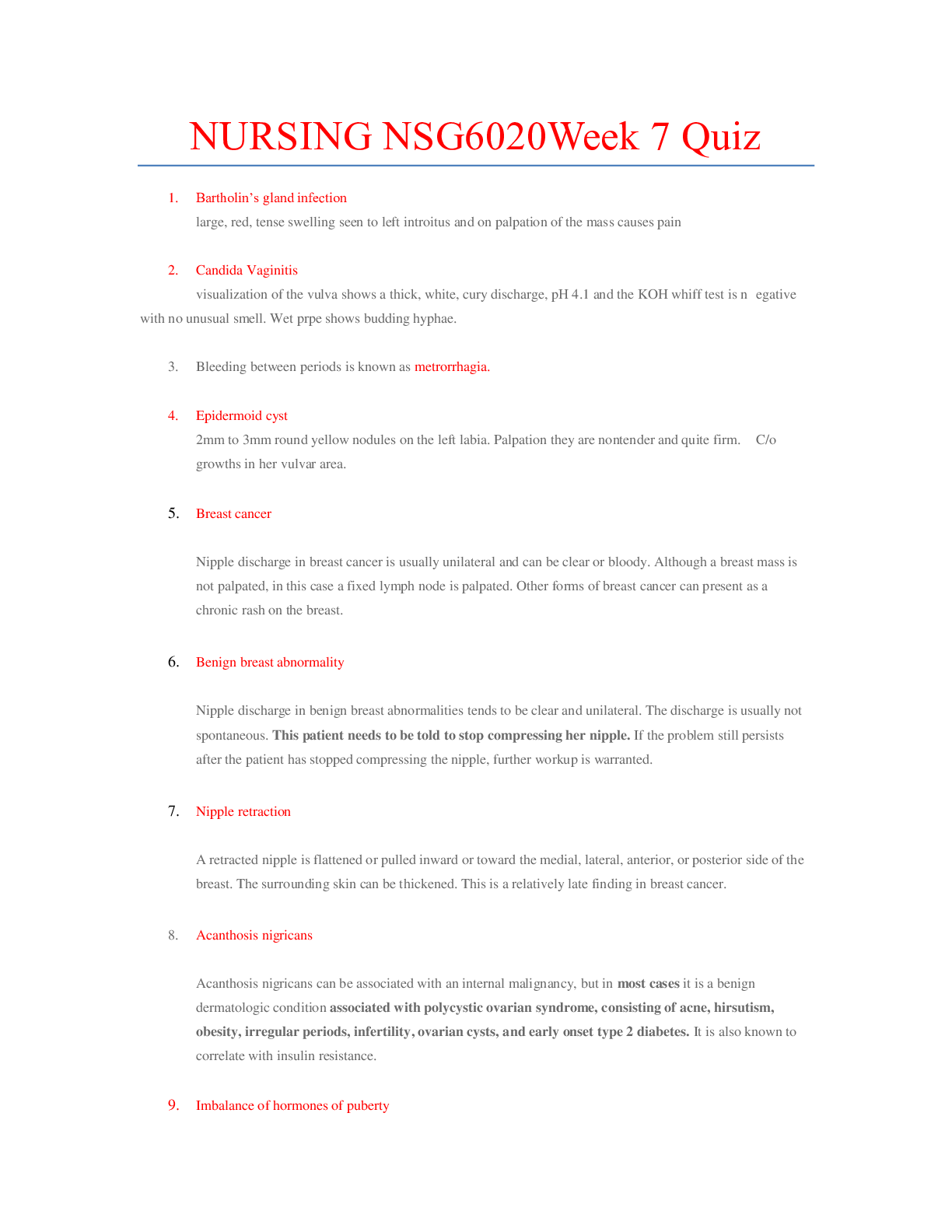
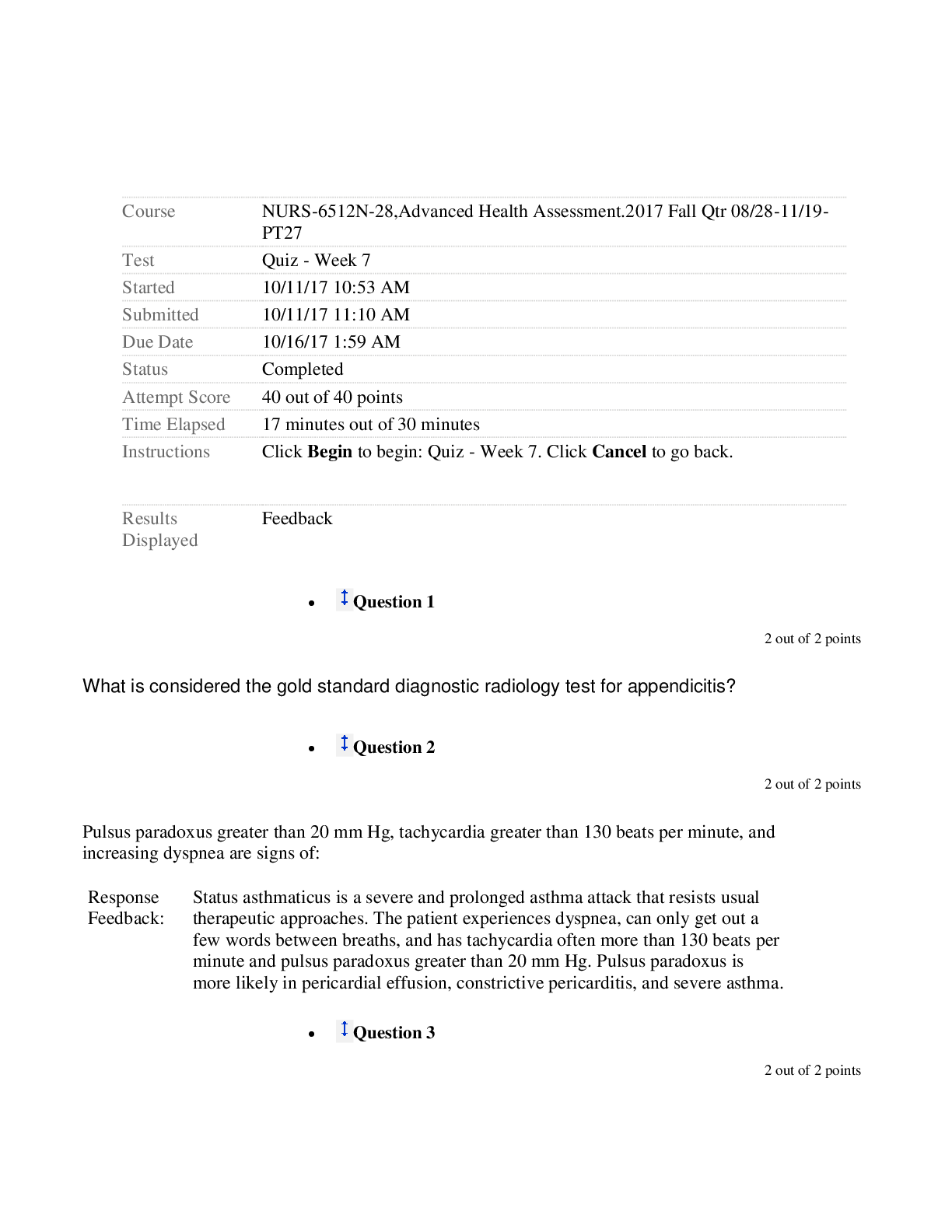



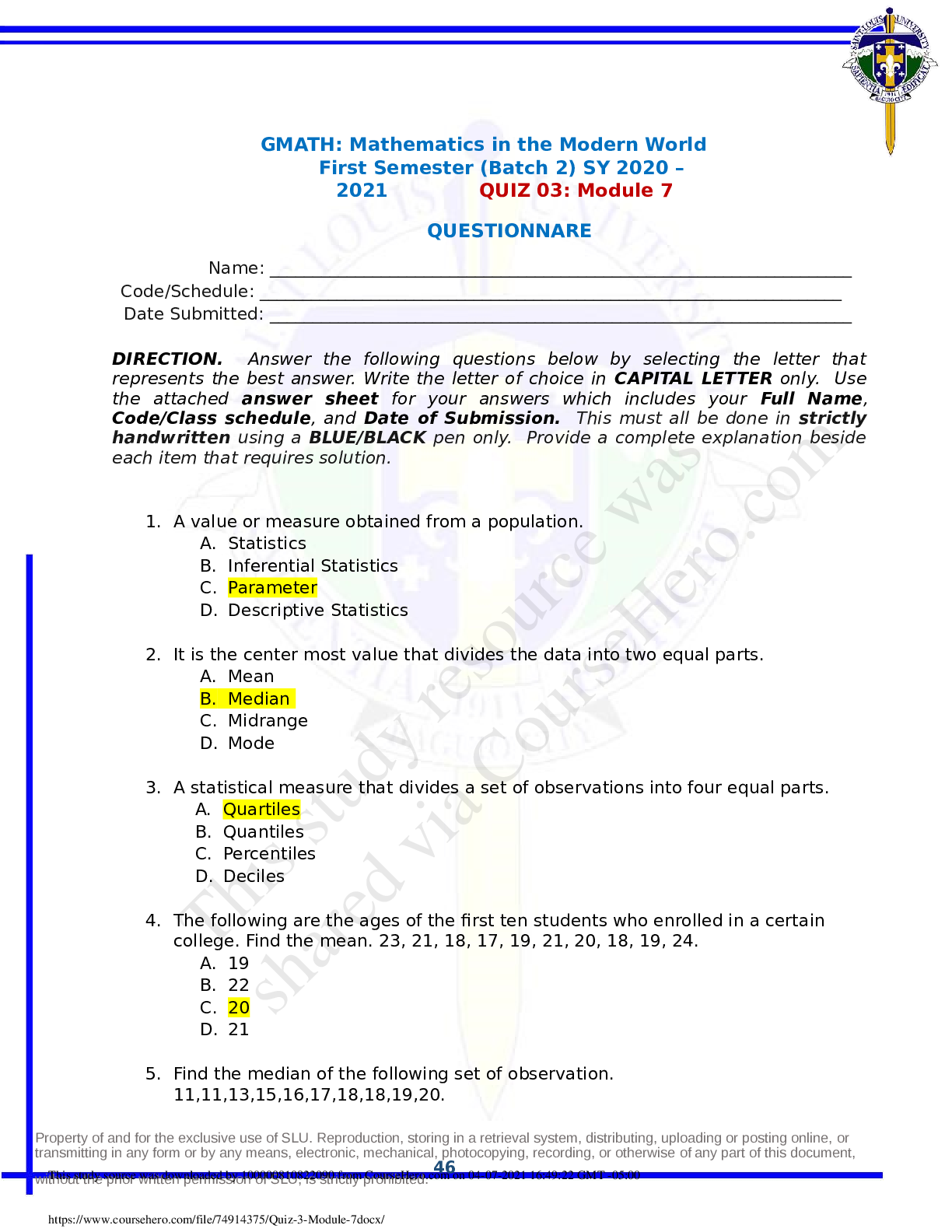



.png)

